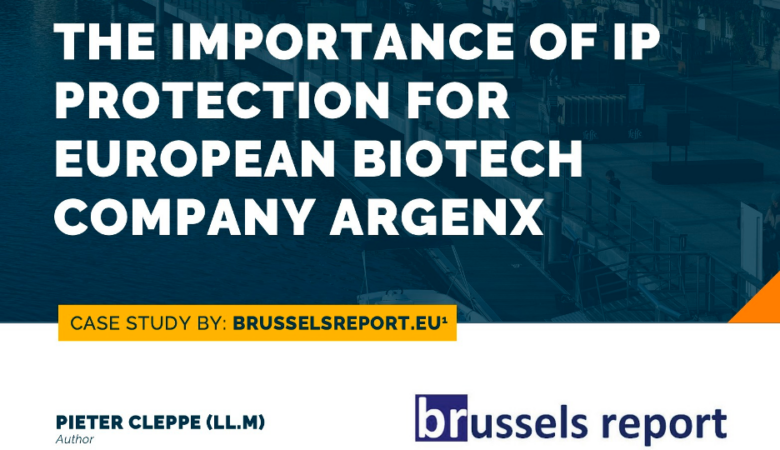Interview with Pieter Cleppe on Innovation and Intellectual Property Rights in the Biotech Industry
The Property Rights Alliance had the pleasure of interviewing Pieter Cleppe, the founder and editor-in-chief of Brussels Report, a free-market media outlet dedicated to news and analysis covering the European Union, and author of the case study “The Importance of IP Protection for Belgian Biotech Company, Argenx” on the importance of IP protection for the Belgium-based biotech company Argenx.
By Dr. Susanna Lukacs
What is at the heart of the mission of Argenx?
Argenx is the leading clinical-stage biotechnology company in Europe, founded by Belgian bioengineer Tim Van Hauwermeiren in 2008, together with Hans de Haard and Torsten Dreier. The company is developing a deep pipeline of differentiated antibody-based therapies for the treatment of severe auto-immune diseases and cancer. In July 2023, Argenx was able to present material progress with regards to its medicine Vyvgart to treat CIDP, an autoimmune disease, enabling it to raise more than 1 billion USD with investors. This also caused its stock price to increase by 30 percent in a few days. This medicine has been called a Swiss army knife in the treatment of autoimmune diseases. It is meant to cure not less than fifteen areas of diseases, including CIDP, a chronic inflammatory demyelinating polyneuropathy.
How have IP rights worked in the company’s favor? What has Argenx done to influence IP rights in the industry?
At the moment, the medicine is being deployed against one autoimmune disease, and material progress is now being made to deploy it against a second one. We can only hope that things move faster, but this shows how difficult this economic sector is and how key IP protection is. IP has been key specifically for Argenx. The company has stated that its proprietary SIMPLE Antibody platform has led to the discovery of the first antibody providing evidence that its remedies are effective, in the context of cancer immunotherapy.
What are the impacts of the EU’s price regulation on pharmaceuticals? How will that affect your profits?
Throughout the search for financial resources, Argenx was up against a great challenge – it takes about 15 years to see a return on investment in the life sciences industry, while eight out of 10 drugs fail after being launched. It doesn’t take a genius to understand that stiff price regulation would simply result in fewer life-saving medicines being developed, given how challenging it already is today for such innovative companies. The success of Argenx stands in sharp contrast with some of its competitors, 80 percent of fellow Belgian biotech firms witnessed their share price tanking by more than 90 percent over the last five years.
What reforms are necessary in IP for investment and R&D to bear fruit in the pharmaceutical industry?
It should be seriously considered to expand the period during which certain life-saving inventions enjoy IP protection. An open debate should be possible when it comes to intellectual property in general. Perhaps in certain cases, the protection is too generous, while in others, it is too restrictive. Also, bureaucratic hurdles should be further minimized, and the quality and speed of the administrative process to protect IP should also be improved.

